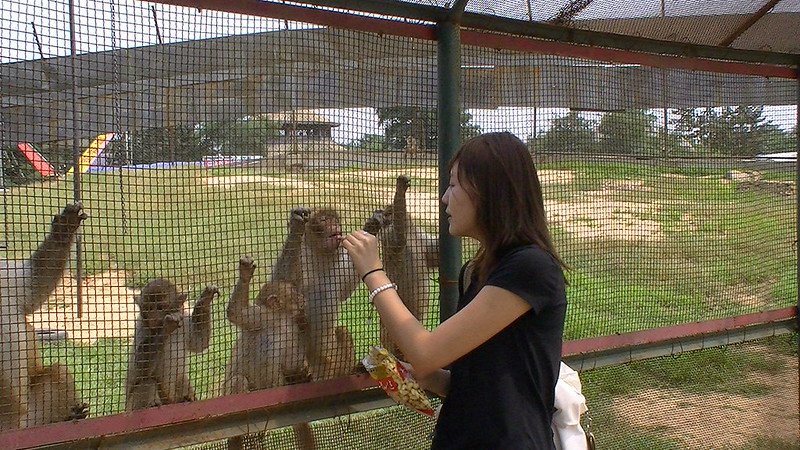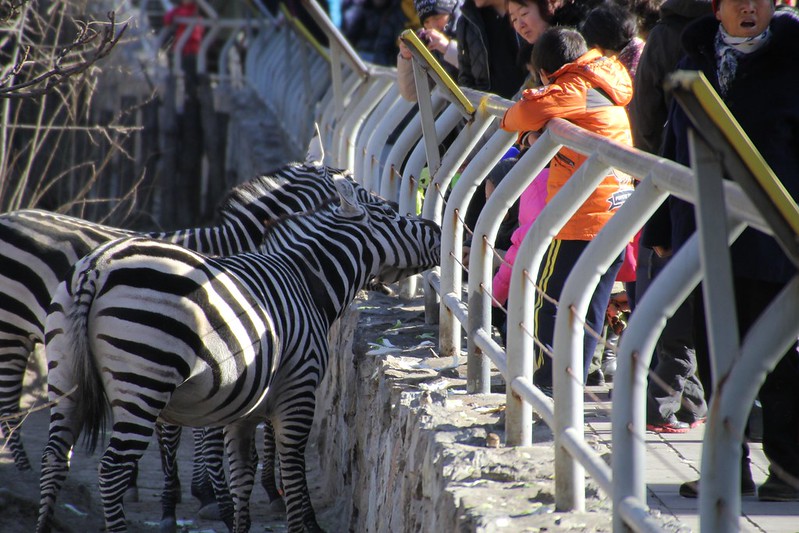Kangaroo stoned to death in Chinese zoo must be a wake up call for the industry
02 May 2018
Inexcusable killing is not an isolated case and proves zoos in the country must act immediately to protect the animals in their care - and educate their visitors.
By Dave Neale, Animals Asia’s Animal Welfare Director
In April this year, a 12-year-old female and a five-year-old male kangaroo in China’s Fuzhou Zoo had rocks thrown at them by visitors who wanted to see them hop.
The male suffered a wound to his foot while the female tragically died due to internal bleeding sustained during the shocking and appalling attack.
Words struggle to describe what would possess an individual to think that it is acceptable to throw rocks at any animal. In this case, the immoral actions of a few individuals have caused suffering and death.

These actions are inexcusable and sadly, are not an isolated case. This week it was also discovered that visitors to a zoo in eastern China had plucked the feathers from live peacocks.
Clearly China’s zoos must be held responsible for neglecting the safety of the animals within their care.
Incidents of animal abuse perpetrated by visitors within zoos are difficult for the zoo management to predict and subsequently manage, but steps can and must be taken to minimise their reoccurrence.
In the short term, Fuzhou Zoo must install cameras at the enclosures, monitoring the visitor behaviour and acting as a deterrent for future acts of cruelty.
In the longer term, the zoo must increase the number of staff present within the visitor areas. Zoo staff should engage the public with the animals they exhibit in a positive manner. Providing information on the animal’s natural behaviours, emotional capacities and cognitive capabilities to ensure the visitors develop a connection with the animals as individuals in need of care and protection - rather than an object of entertainment.
The zoo must also promote these messages throughout their educational materials both on-site and online to ensure visitors are exposed to them prior to their arrival and during their visit, and thus respect the animals’ need for peace.
If animals are promoted to the public purely as a form of entertainment, then visitors are unlikely to respect them for the individuals they are.
A visit to the zoo should be an educational experience, viewing animals kept in natural groupings and in conditions which mimic their natural environments. Visitors should leave with a sense of wonder at the animals they have learned about and a desire to do all they can to protect them and their natural habitats from further degradation and loss as a result of human activity.
READ MORE: Is there still a place for zoos?
But this will only happen when zoos adopt management policies which provide for the physical and behavioural needs of the animals they exhibit, and educational programmes which create wonder and awe in the minds of the visitors as they learn about the incredible natural lives of the animals they have the privilege to be near.
Animals Asia has written to Fuzhou Zoo as part of a coalition of animal welfare charities detailing exactly how they can stop similar outrages from happening again.
We also consistently provide advice to zoo educators enabling them to carry out educational work which highlights animals’ natural behaviours, as well as their emotional and cognitive capabilities.
BACK







